Madness Radio: Voices And Visions from Outside Mental Health explores 'madness' from beyond conventional perspectives and mainstream treatments, featuring survivors, authors, advocates, professionals, and artists.
Hosted by Will Hall, with guest co-hosts Jacks McNamara and Jessica Gallinger, Madness Radio launched in 2005 on Valley Free Radio and aired more than 200 shows since then. We've been broadcast on KBOO in Oregon, syndicated on other stations through Pacifica, and currenrly podcasting on Spotify, Stitcher, iTunes, Pandora, and Google Play. More info on our About page.
Check out the Madness Radio book! Outside Mental Health: Voices and Visions of Madness gathers edited show interviews and additional content, and is available in print and as a free download.
Madness Radio is an affiliate of Mad In America Radio!
Check out www.madinamerica.com. Theme music courtesy Bonfire Madigan. Thanks to past Madness Radio Producers Jenka Soderberg, Nina Packebush, Leah Harris and Jeremy Lanzman. And thanks to our 190+ Madness Radio Kickstarter donors for supporting the show!
Listen to recent shows below or find us in your favorite podcast app, subscribe to be notified of new episodes on the right, browse by topics, search by keyword, or see a list all 200+ shows by date and title, in the archive. (Shorter versions are also available.)
Madness Radio is creative commons copyright! Please copy, post, and share freely. And get involved: send topic ideas, leave comments, ask FM stations to air us, leave an iTunes review, or make a donation.
Intergenerational Trauma | Naas Siddiqui | Madness Radio
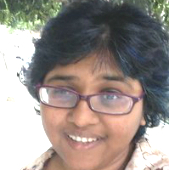
What if psychotic experiences express historical and intergenerational trauma? Does one person’s emotional crisis reach beyond their own individual mind? Could synchronicities and meaningful coincidences guide recovery instead of just being “symptoms”?
Naas Siddiqui, a psychiatric survivor and therapist in training who founded the Spiritual Emergence and other Unusual Experiences student group, descended into altered states after withdrawing from psychiatric medications. She discovered how her Bangladeshi heritage shaped her madness, and found a unique pathway to use her visionary states to heal personal and family trauma.
http://www.madinamerica.com/2015/10/transmuting-historical-trauma/
https://www.madinamerica.com/author/nsiddiqui/
Podcast: Play in new window | Download (Duration: 50:22 — 115.3MB)
Subscribe: RSS
New Vision for Psychiatry | Jim van Os | Madness Radio
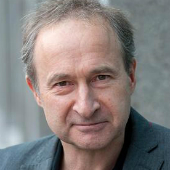
What if psychiatry recognized that schizophrenia does not exist? How might diagnostic categories (left over from the asylum era) be replaced by spectrums of experience that show how psychotic experiences can also be normal? What if services were oriented around individuals, not the statistical groups of “evidence based” research? And could the mental health system as we know it, which defines health as the absence of disease symptoms, be replaced with a new definition of health, health as empowerment in life?
Jim van Os, professor of Psychiatric Epidemiology at Maastricht University and member of the Royal Dutch Academy of Science with more than 700 publications, is one of the top one percent highly cited scientists in the world. His research combines with the experiential knowledge of people with lived experience of psychosis to envision a radically new direction for the mental health system. (Alternate 58 min version here.)
https://www.madnessradio.net/files/SchizophreniaDoesNotExist-vanOs-BMJ.pdf https://www.madnessradio.net/files/HuberHowShouldWeDefineHealthbmjd4163.pdf
http://www.brown.uk.com/schizophrenia/rossler.pdf
http://www.huffingtonpost.com/
http://bit.ly/1IYsEez
Podcast: Play in new window | Download (Duration: 1:05:24 — 149.7MB)
Subscribe: RSS
Stop The Murphy Bill | Leah Harris | Madness Radio
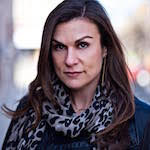
The Families in Mental Health Crisis Act HR 2646 — The Murphy Bill — proposes drastic changes to US mental health policies. Will the Murphy Bill curb violence and improve care? Or will more forced treatment, medication, and hospitalization only enrich pharmaceutical and medical industry power and reinforce stereotypes at the expense of real human needs?
Leah Harris, psychiatric abuse survivor and organizer for the Campaign for Real Change in Mental Health Policy, completed an investigative report on the Murphy Bill’s potential impact on people in crisis, how the gun manufacturer lobby is involved, and the role of Otsuka Pharmaceuticals.
www.realmhchange.org http://www.ndrn.org/en/issues/mental-health/protect-paimi.html www.proteus.com/press-releases/u-s-fda-accepts-first-digital-medicine-new-drug-application-for-otsuka-and-proteus-digital-health/
Podcast: Play in new window | Download (Duration: 56:20 — 51.6MB)
Subscribe: RSS
- Show topics:
- Activism
- Big Pharma
- Human Rights
- System Abolition
Economic Austerity and Mental Health | Mary O’Hara | Madness Radio
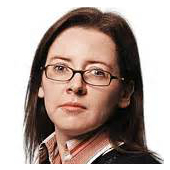
Is mental health about individual diseases, or the health of communities and countries as a whole? How do economic policies after the 2008 crisis impact disability rights, suicide rates, and community wellbeing? Are cuts in social spending really necessary for economic growth, or do they cause more problems in the long run?
Guardian columnist Mary O’Hara, author of Austerity Bites, discusses the devastating impact of austerity economic policies in Europe, the scapegoating mindset behind social spending cuts, and the dangers of pursuing similar policies in the US and globally. http://www.theguardian.com/profile/maryohara www.austeritybitesuk.com
http://m.mh.bmj.com/content/41/1/40.full
http://bit.ly/Ot9hzg
Podcast: Play in new window | Download (Duration: 1:01:08 — 83.9MB)
Subscribe: RSS
Journey Through Mania | Oryx Cohen | Madness Radio
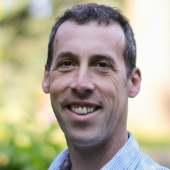
Psychiatric survivor leader Oryx Cohen was at a national conference when a seizure suddenly launched him out of his body and into a visionary state of madness. Avoiding medications or hospitalization, friends held a hotel room vigil for Oryx for many sleepless nights, and then drove him 4 days across country to safety.
What surprising lessons – about the usefulness of medications, support, spirituality, and his own trauma – did Oryx learn? How can the fear of manic psychosis turn into healing?
Podcast: Play in new window | Download (Duration: 55:37 — 51.0MB)
Subscribe: RSS
Evolution of Mind | Maxine Sheets-Johnstone | Madness Radio
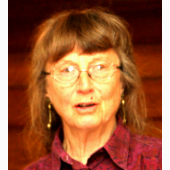
Is thinking a cognitive process of information input and output? Or do consciousness and emotion take place in our bodies – animated, moving, and responsive to the environment? And what would Darwin think of today’s focus on brains and neuroscience – is there an evolutionary way to understand the mind instead?
Maxine Sheets-Johnstone, dancer, philosopher, and author of more than 70 journal articles and 9 books, including The Corporeal Turn: An Interdisciplinary Reader, The Primacy of Movement, and The Phenomenology Of Dance, explores her understanding of the evolution of mind. http://www.scholarpedia.org/article/Movement_as_a_Way_of_Knowing
http://www.bodypsychyoga.com/Downloads_BCMT/ProgressiveRelaxation.pdf
http://www.amazon.com/Putting-Movement-into-Your-Life/dp/149747695X
Podcast: Play in new window | Download (Duration: 53:26 — 48.9MB)
Subscribe: RSS
Lincoln’s Depression | Joshua Wolf Shenk | Madness Radio
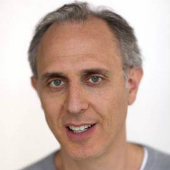
Celebrated US President Abraham Lincoln also suffered from life-threatening depression. Did he view his “melancholy” as a treatable illness, as a punishment from God — or as a source of his gifts? How did Lincoln’s extraordinary leadership abilities arise from his struggle with extreme pain?
Joshua Wolf Shenk, author of Lincoln’s Melancholy: How Depression Challenged a President and Fueled His Greatness, explores the famous President’s battle with despair, suicide, and intense sorrow, and discusses what people with depression – and the medical establishment empowered to treat them – can learn from Lincoln’s suffering. www.shenk.net www.theatlantic.com/magazine/archive/2005/10/lincolns-great-depression/304247/ www.theatlantic.com/magazine/archive/2009/06/what-makes-us-happy/307439/ www.shapell.org/manuscript.aspx?lincoln-mccullough-civil-war-condolence
Podcast: Play in new window | Download (Duration: 53:56 — 49.4MB)
Subscribe: RSS
- Show topics:
- Books
- Depression
- History
- Personal Stories
- Suicide
Special Messages | Tim Dreby | Madness Radio
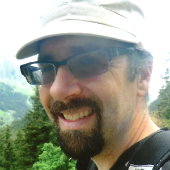
What if you were the only one seeing coded messages, covert realities, and elaborate plots all around you? Does that make you out of touch with reality, “paranoid” and “psychotic?” Or is it real — but you are just so upset that everyone thinks the problem is you instead?
Tim Dreby, a psychotherapist and author in the San Francisco Bay Area, endured a life-threatening — and real — encounter with gangsters, police, and political conspiracy. He also survived a schizophrenia diagnosis, and today leads support groups for people facing overwhelming intuitions, coded messages, and conspiracies, helping them heal from trauma and regain control of their lives. fightingforfreedominamerica.
Podcast: Play in new window | Download (Duration: 56:18 — 51.4MB)
Subscribe: RSS
Psychotherapy for Schizophrenia | Bert Karon
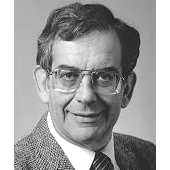
In schizophrenia really an “incurable illness” — or a state of chronic terror? Are there ways for psychotherapy to reach people in different realities? And can talk therapy offer a humane and empowering approach?
Bert Karon, psychoanalyst since 1955, co-author of the classic textbook Psychotherapy of Schizophrenia, and Professor of Clinical Psychology at Michigan State University, outlines psychoanalysis and discusses how his talking cure helps people diagnosed psychotic and schizophrenic.
http://psychrights.org/Research/Digest/Effective/BKaronTragedyofnoPsychotherapy4Schizophrenia.pdf
http://bit.ly/ZxwwNk
http://bit.ly/11CPtzO
Podcast: Play in new window | Download (Duration: 52:45 — 48.6MB)
Subscribe: RSS
Communicating With Psychosis | Dina Tyler
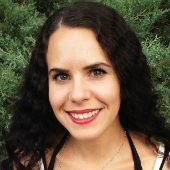
Are there ways to reach people in states of madness? How do talking with ghosts, hearing voices, and seeing visions — as well as enduring family turmoil — relate to psychotic crisis?
When Dina Tyler discovered the meaning of life in an altered state, the treatment she received only inflicted further trauma. Dina instead embraced her madness as a guiding force for recovery, and found a way to leave labels and medications behind. Today she works as a counselor to youth experiencing psychosis, communicating across different realities with people driven away from traditional care.
Dina is the co-director of the Bay Area Mandala Project, co-founder of Bay Area Hearing Voices, and works with an early psychosis intervention program in Alameda County, California. She was awarded Peer Specialist of the Year by the National Council for Behavioral Health in 2015!
Podcast: Play in new window | Download (Duration: 54:58 — 50.6MB)
Subscribe: RSS
Family Homes | Carina Håkansson
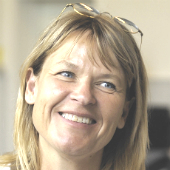
What if ordinary families could provide care for people psychiatry has given up on? Is there a way out for people stuck long-term as mental patients? Can human relationships and living together be more effective than medications, diagnosis, and hospitals?
Carina Håkansson’s values wouldn’t allow her to work in the traditional psychiatric system in Sweden. She left to create the Family Care Foundation, providing foster homes, therapy, and supervision for people with psychosis and extreme emotional distress. What can we all learn from this visionary — and simple — solution?
http://www.familjevardsstiftelsen.se
http://bit.ly/1l8KYQz
http://www.madinamerica.com/2013/04/carina-hakansson-family-care-foundation/
Podcast: Play in new window | Download (Duration: 50:15 — 46.1MB)
Subscribe: RSS
Healing Connection | Lauren Spiro
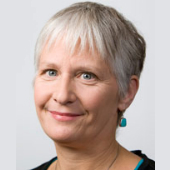
How do we recover from childhood violence? When Lauren Spiro was 14, her father was murdered. Eighteen months later, she began to have unusual spiritual experiences and was diagnosed with schizophrenia. Today she works to promote peace and healing in communities, fulfilling the vision she had in her extreme state.
Lauren is co-director of Emotional CPR, associate director of the National Coalition for Mental Health Recovery, and her new memoir is Living For Two: A Daughter’s Journey from Grief and Madness to Forgiveness and Peace.
http://laurenspiro.wordpress.com
www.ncmhr.org
www.emotional-cpr.org
Podcast: Play in new window | Download (Duration: 50:01 — 45.8MB)
Subscribe: RSS
Redefining Research: Nev Jones
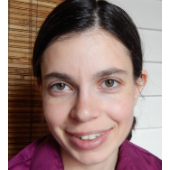
What if researchers collaborated with patients rather than treating them as “informants” and objects of study? Nev Jones survived her mother’s frightening extreme states — and then her own mind unravelled into different realities. She was herself diagnosed with schizophrenia, and began a lifelong exploration of the uniqueness of madness.
Today Nev is a post-doctorate fellow at Stanford University, founder of Chicago Hearing Voices and the Lived Experience Research Network, and part of the the movement to create alternatives to professional control of research on psychosis.
http://depaul.academia.edu/NevJones
http://www.chicagohearingvoices.org
Podcast: Play in new window | Download (Duration: 47:50 — 43.8MB)
Subscribe: RSS
Risky Pills: David Healy
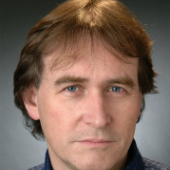
Adverse effects from prescription drugs are the 4th leading cause of death in America. How can we know if the pills we take are actually safe? What can we do if they aren’t?
Dr. David Healy, internationally renowned psychiatrist, whistleblower, and author of 20 books, discusses industry corruption of pharmaceutical regulation and proposes better ways to protect patients and prevent harm.
http://www.rxisk.com
http://www.davidhealy.org
http://1.usa.gov/LpbTvU
Podcast: Play in new window | Download (Duration: 47:18 — 43.3MB)
Subscribe: RSS
Medical Coercion: Tomi Gomory
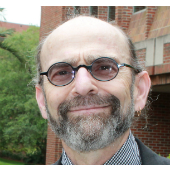
If madness isn’t like other illnesses, what is it? Should psychiatry have the power of legal coercion? How can the legacy of Thomas Szasz inform new ways of helping people?
Tomi Gomory, associate professor of social work at Florida State University and co-author of Mad Science: Psychiatric Coercion, Diagnosis, and Drugs, explores thinking beyond the medical model of emotional distress.
http://csw.fsu.edu/faculty/tomi-gomory
http://bit.ly/LoqI1L
Podcast: Play in new window | Download (Duration: 48:29 — 44.4MB)
Subscribe: RSS


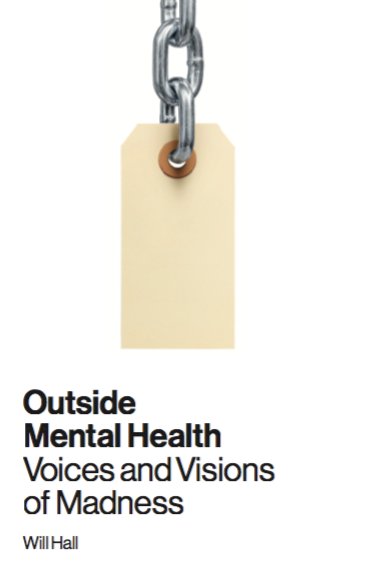


























 Creative Commons 2.5 copyright
Creative Commons 2.5 copyright
Recent Comments